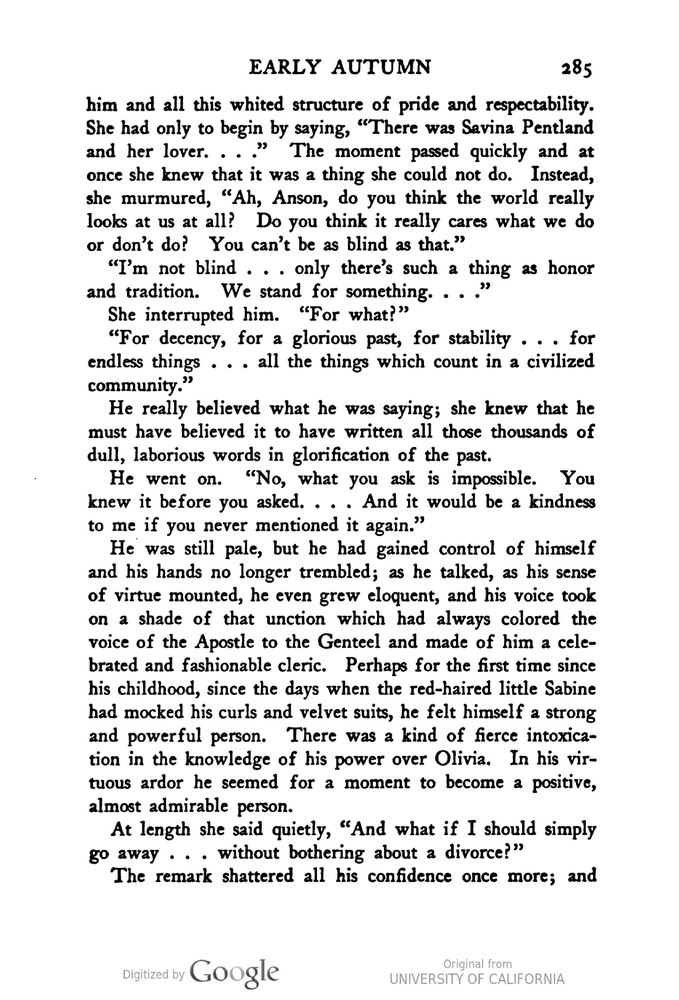him and all this whited structure of pride and respectability. She had only to begin by saying, "There was Savina Pentland and her lover. . . ." The moment passed quickly and at once she knew that it was a thing she could not do. Instead, she murmured, "Ah, Anson, do you think the world really looks at us at all? Do you think it really cares what we do or don't do? You can't be as blind as that."
"I'm not blind . . . only there's such a thing as honor and tradition. We stand for something. . . ."
She interrupted him. "For what?"
"For decency, for a glorious past, for stability . . . for endless things . . . all the things which count in a civilized community."
He really believed what he was saying; she knew that he must have believed it to have written all those thousands of dull, laborious words in glorification of the past.
He went on. "No, what you ask is impossible. You knew it before you asked. . . . And it would be a kindness to me if you never mentioned it again."
He was still pale, but he had gained control of himself and his hands no longer trembled; as he talked, as his sense of virtue mounted, he even grew eloquent, and his voice took on a shade of that unction which had always colored the voice of the Apostle to the Genteel and made of him a celebrated and fashionable cleric. Perhaps for the first time since his childhood, since the days when the red-haired little Sabine had mocked his curls and velvet suits, he felt himself a strong and powerful person. There was a kind of fierce intoxication in the knowledge of his power over Olivia. In his virtuous ardor he seemed for a moment to become a positive, almost admirable person.
At length she said quietly, "And what if I should simply go away . . . without bothering about a divorce?"
The remark shattered all his confidence once more; and
